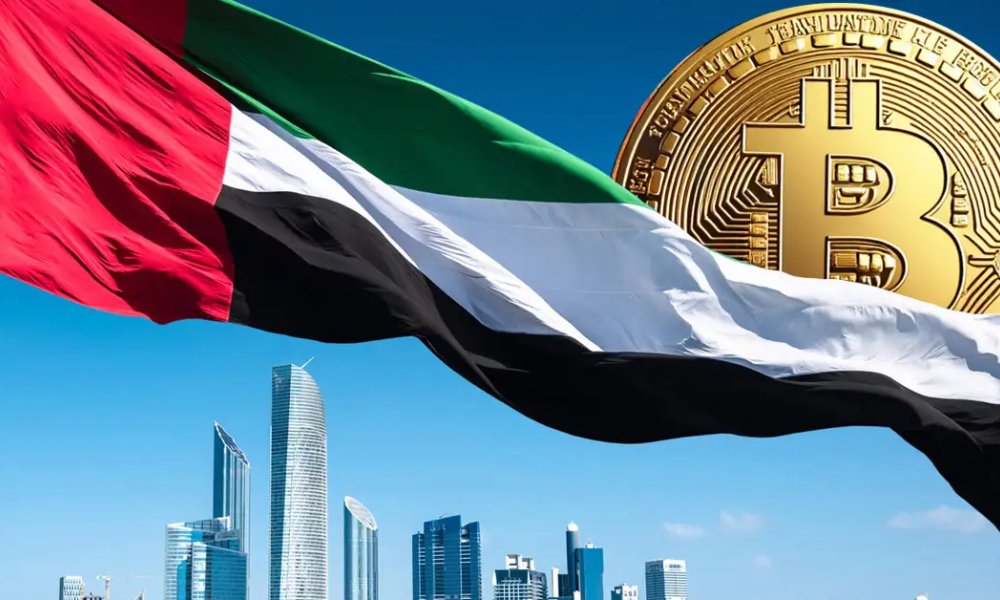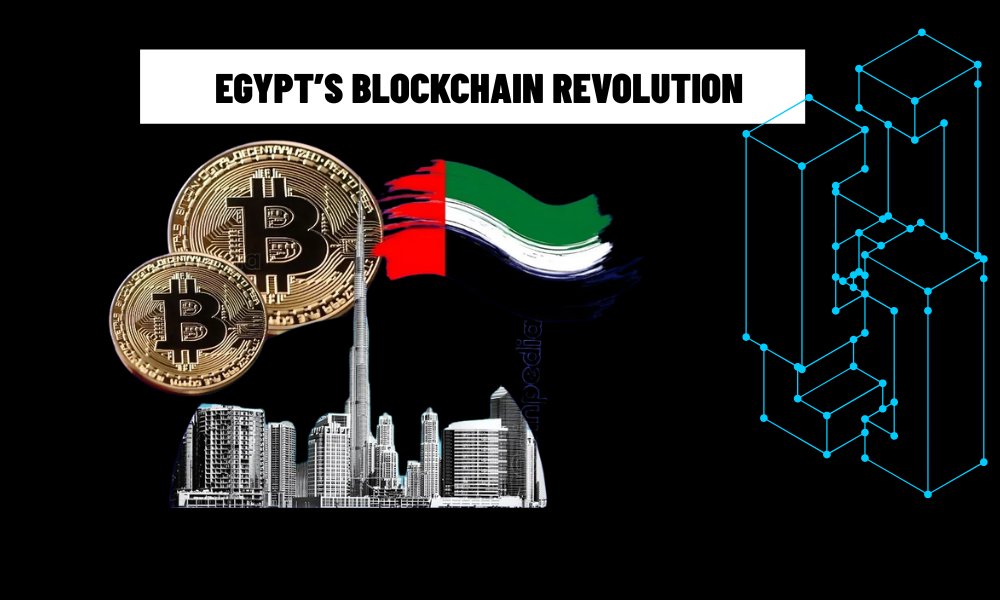Egypt is emerging as a beacon of blockchain innovation in Africa, leveraging decentralized ledger technology to tackle economic challenges and drive inclusive growth. With a population of over 110 million, a surging digital economy, and government-backed initiatives, Egypt is positioning itself as a regional leader in blockchain adoption.
This article explores Egypt’s strategic embrace of blockchain, its transformative potential across key sectors, and the implications for investors and the global crypto market, drawing on trends highlighted in recent industry analyses and community sentiment on platforms like X.
Egypt’s Economic Imperative and Blockchain’s Role
Egypt’s economy, valued at $393 billion in 2024, grapples with high inflation (26%), a devalued currency (60% drop since 2022), and 30% of its population unbanked. These challenges, coupled with bureaucratic inefficiencies and a reliance on remittances ($31.5 billion annually), create fertile ground for blockchain solutions. The technology’s ability to provide transparency, reduce costs, and enable trustless transactions aligns with Egypt’s Vision 2030, which prioritizes digital transformation and financial inclusion.

In 2023, Egypt launched its National Blockchain Strategy, signaling a commitment to integrate blockchain into public and private sectors. The Central Bank of Egypt (CBE) has explored blockchain-based digital currencies since 2020, while partnerships with global tech firms like IBM underscore the country’s ambition. Posts on X, such as one from @CryptoMENA on April 12, 2025, highlight Egypt’s growing crypto adoption, with 2.7 million citizens trading $3.4 billion in digital assets annually, reflecting a grassroots push for decentralized finance (DeFi).
Transformative Applications Across Sectors
Blockchain’s potential to reshape Egypt’s economy spans multiple domains, addressing systemic inefficiencies and unlocking new opportunities.
1. Financial Inclusion and Cross-Border Payments
With 30 million unbanked Egyptians and a diaspora sending $31.5 billion in remittances yearly, blockchain offers a lifeline. Platforms like Stellar or Algorand can slash remittance fees from 7% to under 1%, delivering instant settlements. A 2022 pilot by Banque Misr demonstrated blockchain’s efficacy, reducing cross-border payment times from days to seconds. Stablecoins like USDC, gaining traction amid the Egyptian pound’s volatility, could empower citizens to save and transact without currency risk, especially with 70% smartphone penetration enabling mobile wallet adoption.
2. Agriculture and Supply Chain Transparency
Agriculture, employing 25% of Egyptians, suffers from fraud and opaque supply chains, costing billions. Blockchain’s immutable ledgers can ensure traceability, as seen in a 2024 Ministry of Agriculture pilot that tracked wheat distribution, cutting losses by 15%. Smart contracts on platforms like Ethereum could automate farmer payments, addressing delays that disrupt livelihoods. Egypt’s citrus exports, a $1.5 billion market, could leverage blockchain to certify quality, boosting global competitiveness, as noted by @BlockEgypt on X.
3. Governance and Anti-Corruption
Egypt’s 108th ranking on the Corruption Perceptions Index reflects governance challenges, with bureaucracy costing businesses $10 billion annually. Blockchain can digitize public records, such as land titles, reducing fraud. A 2023 pilot in New Cairo used blockchain to secure land registries, decreasing disputes by 20%. Transparent procurement systems, like those on Hyperledger, could save billions by ensuring fair bidding, while decentralized identity solutions could streamline services like tax filing or voting.
4. Tourism and Cultural Innovation
Tourism, generating 12% of GDP, faces ticketing fraud and revenue leakage. Blockchain-based ticketing, as explored by Egypt’s Ministry of Tourism in 2024, can eliminate counterfeits and enable direct transactions. Tokenizing cultural assets—such as NFT-based virtual Pyramid tours—could create new income streams, with global platforms like OpenSea showing the model’s viability.
5. Renewable Energy and Sustainability
Egypt’s goal of 42% renewable energy by 2030 aligns with blockchain’s potential for peer-to-peer energy trading. Platforms like Power Ledger could enable solar-equipped households to sell excess energy, incentivizing green adoption. A 2025 pilot in Sharm El-Sheikh is testing blockchain for carbon credit tracking, supporting Egypt’s climate commitments.
Egypt’s Blockchain Ecosystem: Momentum and Players
Egypt’s blockchain ecosystem is gaining traction, driven by startups, government initiatives, and global partnerships. Pravica, a decentralized identity platform, and BitOasis, a regional crypto exchange, are leading innovation, while the CBE’s 2023 regulatory sandbox supports early-stage projects. Universities like Cairo University offer blockchain courses, fostering talent, and IBM’s collaboration with Egypt’s Export Development Authority is digitizing trade logistics.
The government’s push for public-private partnerships is evident in projects like the National Bank of Egypt’s 2024 tokenized bond pilot, which raised $50 million. However, Egypt’s crypto regulations remain restrictive, with a 2020 CBE ban on unlicensed trading creating uncertainty for retail investors.
Global Context and Competitive Advantage
Egypt’s blockchain ambitions align with global trends. Nigeria’s National Blockchain Policy and China’s Blockchain Service Network demonstrate state-led adoption, while the global blockchain market is projected to grow from $12 billion in 2024 to $67 billion by 2030. Egypt’s strategic location, bridging Africa and the Middle East, and its control of the Suez Canal (12% of global trade) position it as a potential blockchain hub. The UAE’s $2 billion in blockchain investments highlights regional competition, but Egypt’s youthful, 110-million-strong population offers a unique demographic advantage.
Sentiment on X is optimistic, with @CryptoArabia on April 20, 2025, calling Egypt “Africa’s blockchain gateway.” However, critics note that regulatory clarity and infrastructure upgrades are prerequisites for sustained growth.
Challenges to Overcome
Egypt’s blockchain revolution faces significant obstacles:
-
Regulatory Uncertainty: The CBE’s crypto ban and unclear blockchain taxation deter investment. Adopting frameworks like the EU’s MiCA could attract capital.
-
Infrastructure Limitations: With 28% of Egyptians lacking internet access and frequent rural power outages, scaling blockchain solutions requires investment in 5G and energy.
-
Public Trust: Crypto scams, costing $600 million in 2024, and low blockchain literacy necessitate education campaigns, such as those by Binance in Africa.
-
Implementation Costs: Blockchain deployment demands significant upfront capital, straining Egypt’s fiscal resources. Open-source solutions like Algorand could mitigate costs.
Market Implications and Investor Opportunities
For crypto investors, Egypt’s blockchain push signals untapped potential. DeFi platforms, tokenized real estate, and supply chain solutions offer high-growth prospects, though regulatory risks warrant caution. A successful blockchain ecosystem could add 2–3% to Egypt’s GDP by 2030, creating 500,000 jobs, per industry estimates. The global crypto market’s resilience, with Bitcoin above $84,000 and altcoins rallying, provides tailwinds, but Egypt’s restrictive crypto policies may limit retail participation.
Posts on X, like one from @MENA_Crypto on April 18, 2025, suggest Egypt could emulate Nigeria’s $57 billion crypto market if regulations ease. Investors should monitor pilot projects and regulatory updates for entry points, while diversifying to hedge against volatility.
Future Outlook: A Digital Economic Powerhouse?
Egypt’s blockchain journey is poised for acceleration if key steps are taken:
-
Regulatory Reform: Legalizing licensed crypto trading and clarifying taxation could unlock $5 billion in investments by 2030.
-
Infrastructure Investment: Expanding internet and energy access, particularly in rural areas, is critical for nationwide adoption.
-
Public Education: Partnerships with platforms like Binance or Coinbase to promote blockchain literacy can build trust and reduce scam risks.
-
Strategic Pilots: Scaling successful pilots in remittances, agriculture, and governance could attract global partners like IBM or Algorand.
Egypt’s youthful demographic, strategic geography, and government commitment position it to lead Africa’s blockchain charge. By addressing regulatory and infrastructure challenges, Egypt could not only solve domestic issues but also set a global standard for blockchain-driven development.
A New Economic Dawn
Blockchain offers Egypt a transformative path to address financial exclusion, corruption, and economic volatility, paving the way for a digital-first future. From remittances to agriculture and governance, the technology’s applications are vast, with early pilots showing tangible results. While hurdles like regulation and infrastructure remain, Egypt’s proactive stance and global partnerships signal a bright outlook. For investors and crypto enthusiasts, Egypt represents a frontier market with immense potential, poised to redefine Africa’s economic landscape and inspire the world with its blockchain revolution.

